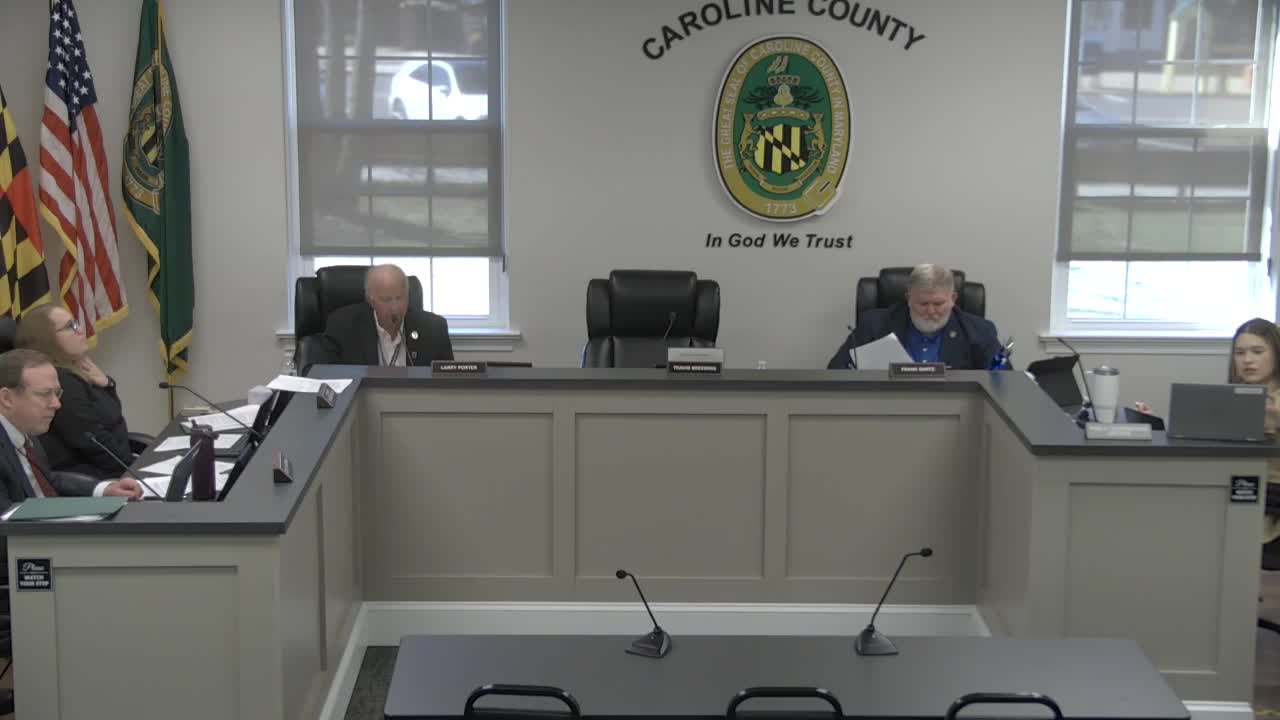Article not found
This article is no longer available. But don't worry—we've gathered other articles that discuss the same topic.
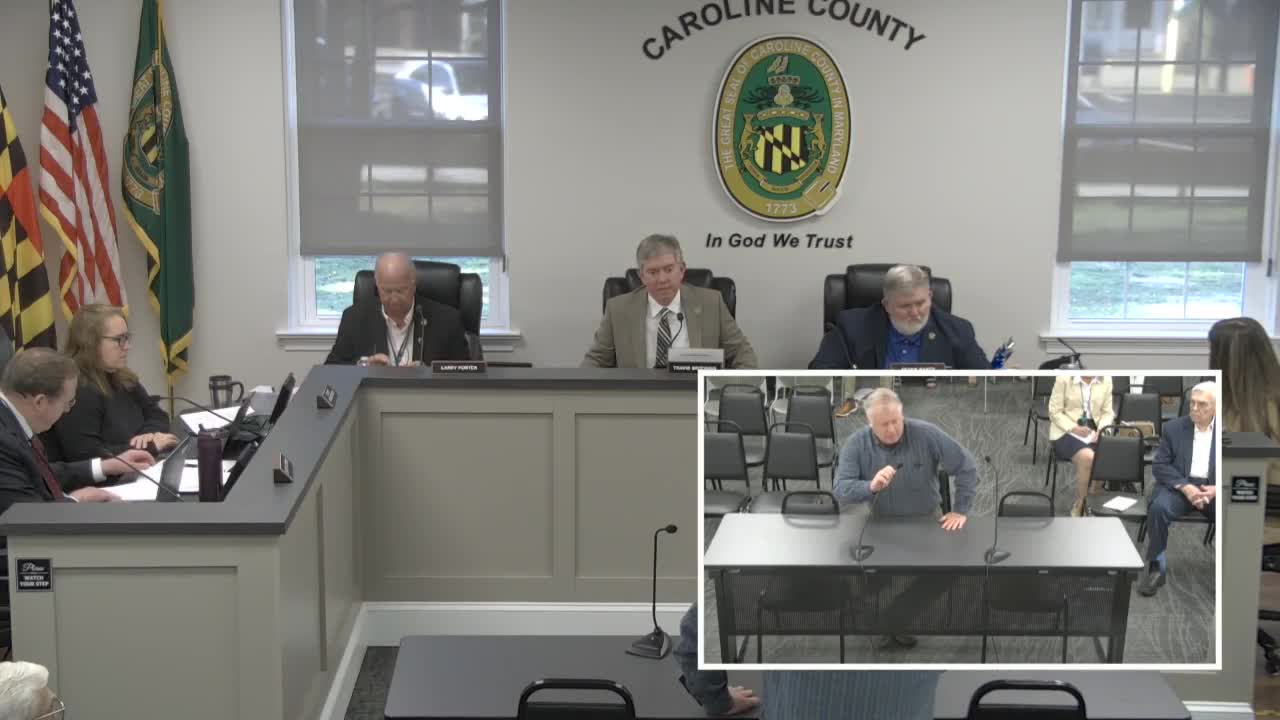
Conservation group and Caroline County commissioners urge opposition to state solar bills, cite battery safety concerns
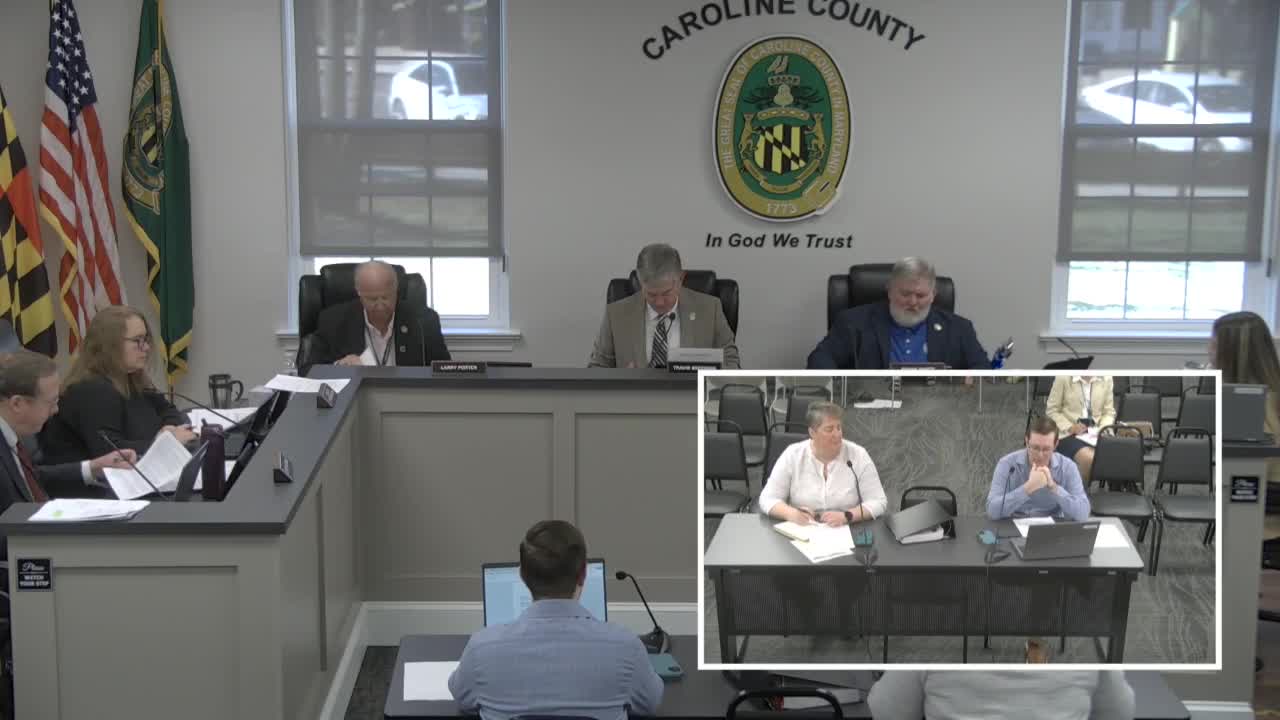
Caroline County reviews FY2026 fee schedule; board directs staff to adjust liquor, Jonestown water and town-tax collection fees
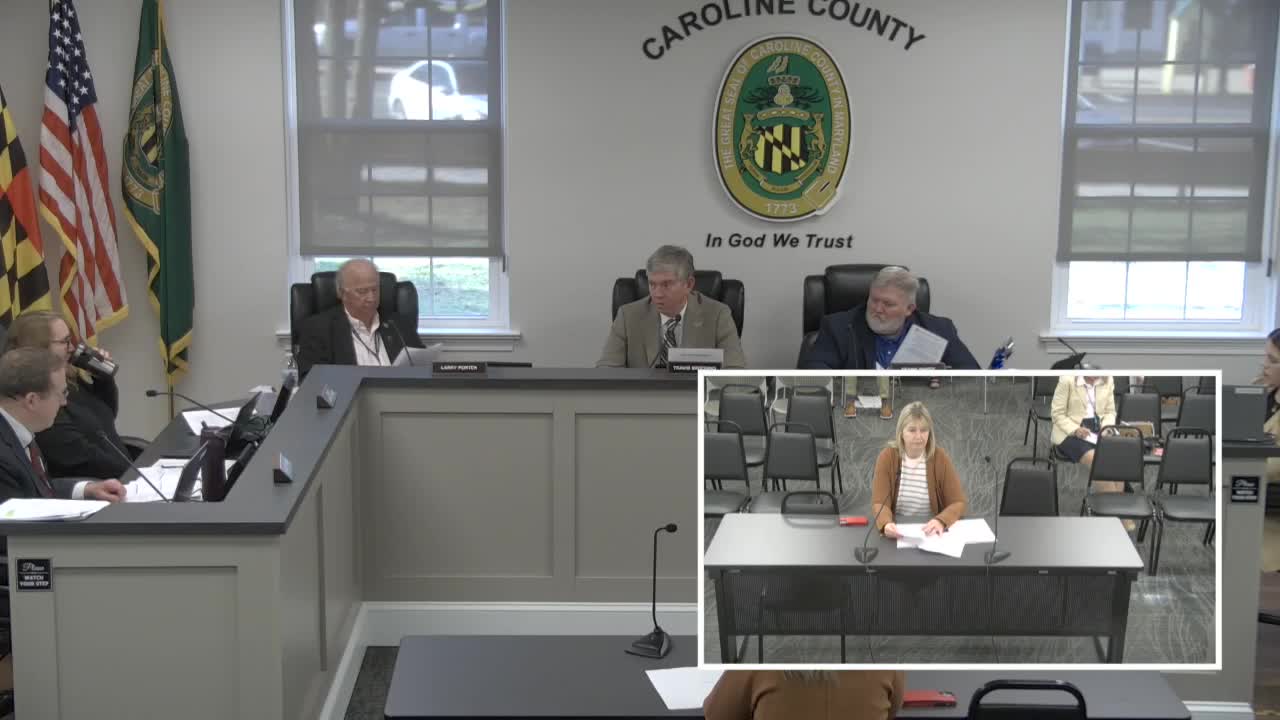
Commissioners introduce ordinance clarifying wastewater-treatment definition, add accessory wastewater use category
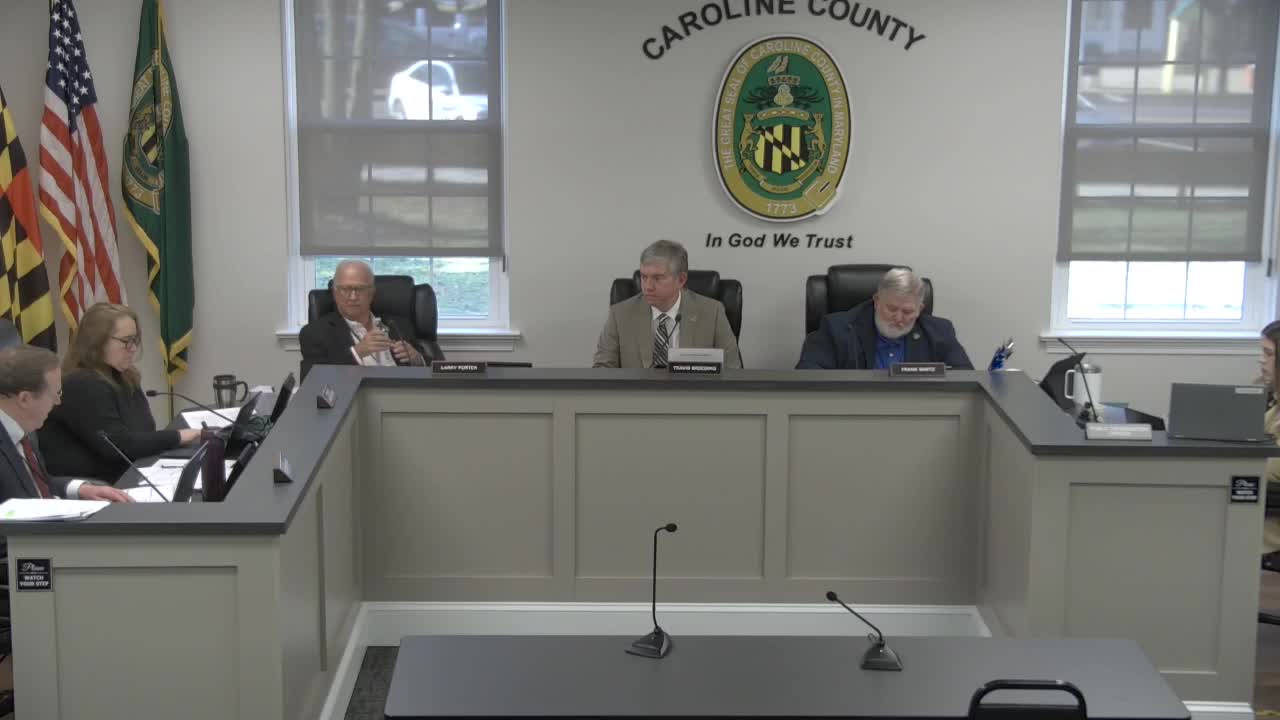
Caroline County commissioners introduce ordinance to remove BZA term limits; second reading, public hearing scheduled
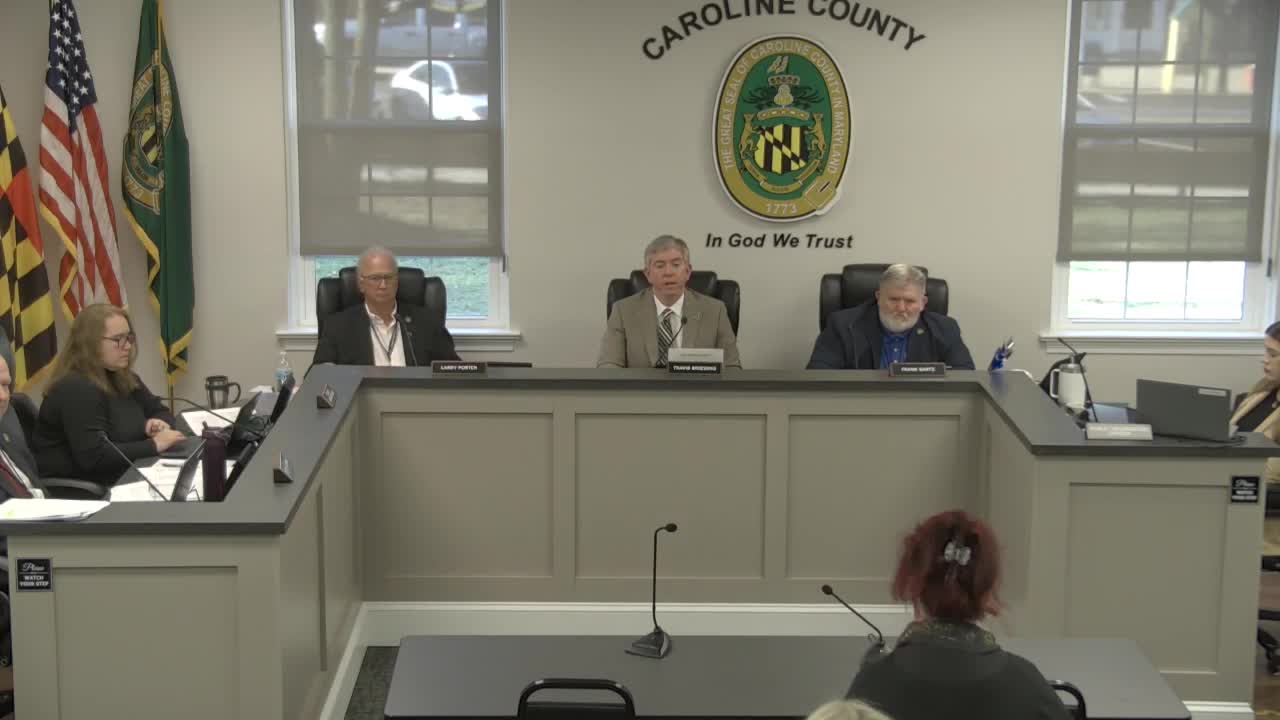
Caroline County hires planner, starts accelerated outreach for 2025 comprehensive plan update
